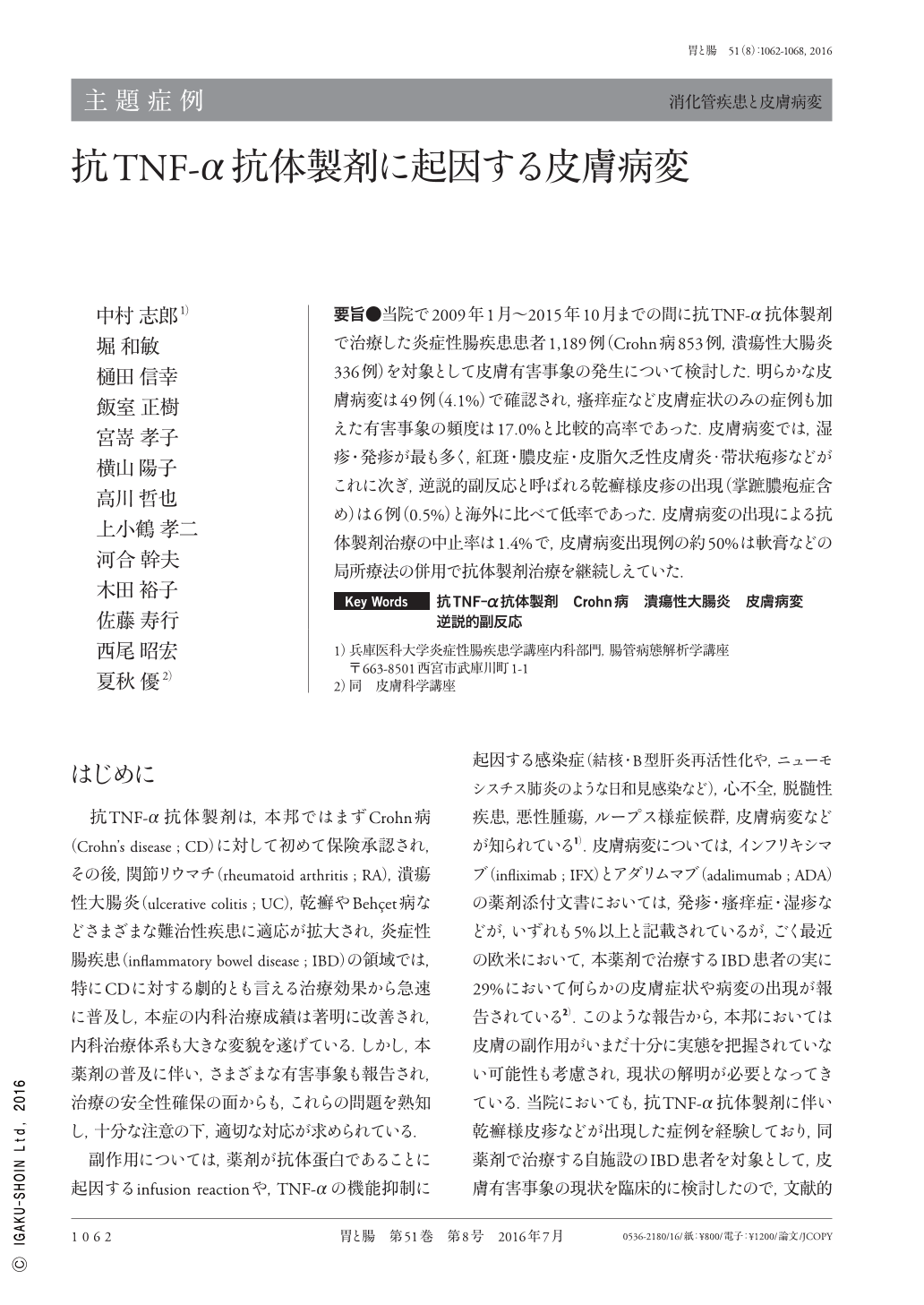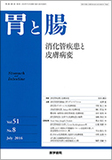Japanese
English
- 有料閲覧
- Abstract 文献概要
- 1ページ目 Look Inside
- 参考文献 Reference
- サイト内被引用 Cited by
要旨●当院で2009年1月〜2015年10月までの間に抗TNF-α抗体製剤で治療した炎症性腸疾患患者1,189例(Crohn病853例,潰瘍性大腸炎336例)を対象として皮膚有害事象の発生について検討した.明らかな皮膚病変は49例(4.1%)で確認され,瘙痒症など皮膚症状のみの症例も加えた有害事象の頻度は17.0%と比較的高率であった.皮膚病変では,湿疹・発疹が最も多く,紅斑・膿皮症・皮脂欠乏性皮膚炎・帯状疱疹などがこれに次ぎ,逆説的副反応と呼ばれる乾癬様皮疹の出現(掌蹠膿疱症含め)は6例(0.5%)と海外に比べて低率であった.皮膚病変の出現による抗体製剤治療の中止率は1.4%で,皮膚病変出現例の約50%は軟膏などの局所療法の併用で抗体製剤治療を継続しえていた.
We examined the incidence of dermatologic adverse effects in 1,189 patients with inflammatory bowel disease(Crohn's disease, n=853 ; ulcerative colitis, n=336)treated with anti-TNF-α antibody preparations at our hospital between January 2009 and October 2015. Marked skin lesions were observed in 49 patients(4.1%). The incidence of adverse effects, including patients with exclusively cutaneous symptoms such as itchiness, was relatively high at 17.0%. Eczema and rash were the most commonly observed skin lesions, followed by erythema, pyoderma, asteatotic dermatitis, and herpes zoster. Psoriasis-like eruptions, a so-called paradoxical side effect, were observed in 6 patients(0.5%), a lower rate than that reported in previous overseas studies. The rate of antibody treatment discontinuation due to skin lesions was 1.4%, with approximately 50% of patients who developed skin lesions able to continue antibody treatment with the combined use of local therapy such as ointments.

Copyright © 2016, Igaku-Shoin Ltd. All rights reserved.


